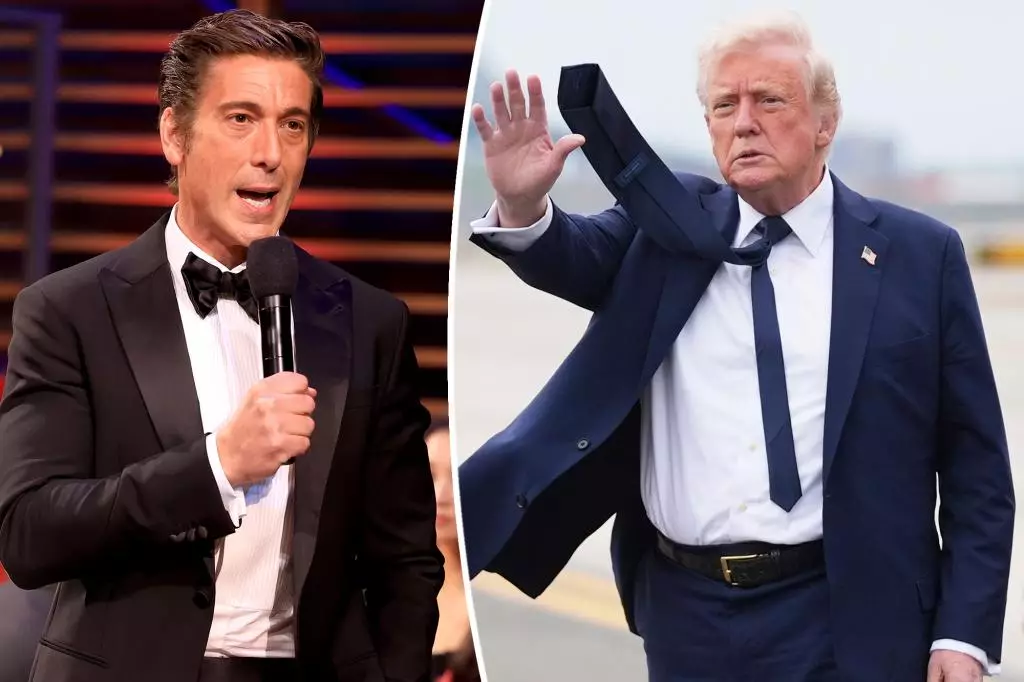In a highly anticipated interview scheduled for Tuesday, President Donald Trump is set to reflect on the first 100 days of his presidency with ABC News. Yet, the spotlight casts a rather distorted shadow—neither of ABC’s top-tier journalists, David Muir or George Stephanopoulos, will be conducting this primetime conversation. This decision underscores the intense friction between Trump and these well-established figures in journalism, a friction that has escalated into a bitter feud. Critics may argue that the omission of Muir and Stephanopoulos—two journalists who have rigorously questioned Trump—diminishes the interview’s credibility.
The roots of this apparent animosity date back to the presidential debates where Muir moderated a session against Democratic candidate Kamala Harris. Trump accused Muir of bias, claiming he was unfairly treated during the debate while Harris was given a gentler hand. Such public rebukes from Trump, labeling Muir as “a lightweight” and suggesting he should be sued, paint a clear picture: the relationship between the president and these journalists is anything but congenial.
A Troubling Trend in Media Access
The media landscape is in constant flux, and decisions like this one from ABC News raise concerns about transparency and accountability. By sidelining Muir and Stephanopoulos, both of whom have established reputations for tough questioning, ABC risks presenting a version of the truth that could be sanitized or tailored to suit Trump’s narrative. This unavoidable compromise could leave viewers without the incisive critiques that are increasingly necessary in today’s politically fraught climate.
Choosing Terry Moran, a less prominent figure compared to Muir and Stephanopoulos, as the interviewer may appear as a strategic move to dodge confrontation. While Moran’s experience is undeniable, the choice sends a confusing message—does the network aim for a straightforward interview or a cushioned chat? The general public craves unfiltered dialogue, but opting for a less familiar face only raises questions about the depth of the exchange that will follow.
Defamation Lawsuits: The Price of Press Freedom?
The broader implications of relationships like these between the media and political figures extend beyond personal grievances. A notable chapter in this saga is the defamation lawsuit settled by ABC News regarding remarks made by Stephanopoulos about Trump. Settlements like these hint at a troubling interplay between the media’s freedom to operate and the pressures exerted by political figures to control their image. This dynamic could ultimately weaken journalistic scrutiny, as networks, wary of financial repercussions, may self-censor to avoid angering powerful individuals.
As we move forward, this isn’t merely about Trump’s interview with a less prominent correspondent; it’s about the fundamental role of journalism in democracy. Will interviews intended to be historical milestones merely echo the voices of those who choose them carefully, or will they engage in the rigorous questioning necessary to hold leaders accountable? As citizens, we must advocate for transparency, complexity, and honesty in our media representations, especially in interviews with those who hold significant power.

